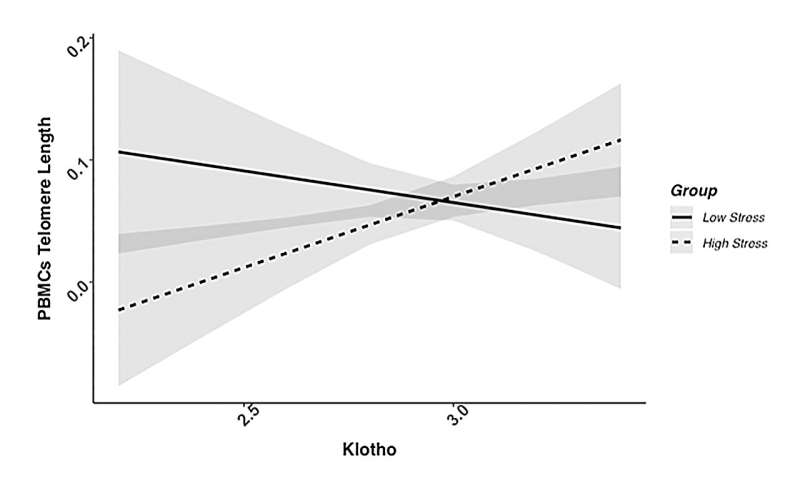This article has been reviewed according to Science X's editorial process and policies. Editors have highlighted the following attributes while ensuring the content's credibility:
fact-checked
proofread
Exploring the relationship between klotho and telomere biology in high-stress caregivers

A new research paper was published by Aging, titled "Associations between klotho and telomere biology in high stress caregivers."
Aging biomarkers may be related to each other through direct co-regulation and/or through being regulated by common processes associated with chronological aging or stress. Klotho is an aging regulator that acts as a circulating hormone with critical involvement in regulating insulin signaling, phosphate homeostasis, oxidative stress, and age-related inflammatory functioning.
In this new study, researchers discuss the association between klotho levels and telomere length of specific sorted immune cells among a healthy sample of mothers caregiving for a child with autism spectrum disorder (ASD) or a child without ASD—covarying age and body mass index—in order to understand if high stress associated with caregiving for a child with an ASD may be involved in any association between these aging biomarkers.
"Here we examine the relationship between two important biomarkers of aging, klotho and telomere length, in a healthy sample stratified into groups based on a combination of (a) stressor exposure and (b) level of perceived stress (i.e., high-stress mothers of children with ASD compared to low-stress mothers of neurotypical children)," the researchers say.
In 178 caregiving women, the researchers found that klotho levels were positively associated with telomere length in PBMCs (an effect driven by CD4+ and CD8+CD28− T cells) among high-stress mothers of children with an ASD, but not among low-stress mothers of neurotypical children. There were no significant associations between klotho and telomerase activity in either group, across cell types assessed here.
"Our results suggest that klotho levels and telomere length may be associated through a coordinated downregulation of longevity factors occurring under higher stress caregiving conditions," the researchers conclude.
More information: Ryan L. Brown et al, Associations between klotho and telomere biology in high stress caregivers, Aging (2023). DOI: 10.18632/aging.204961



















